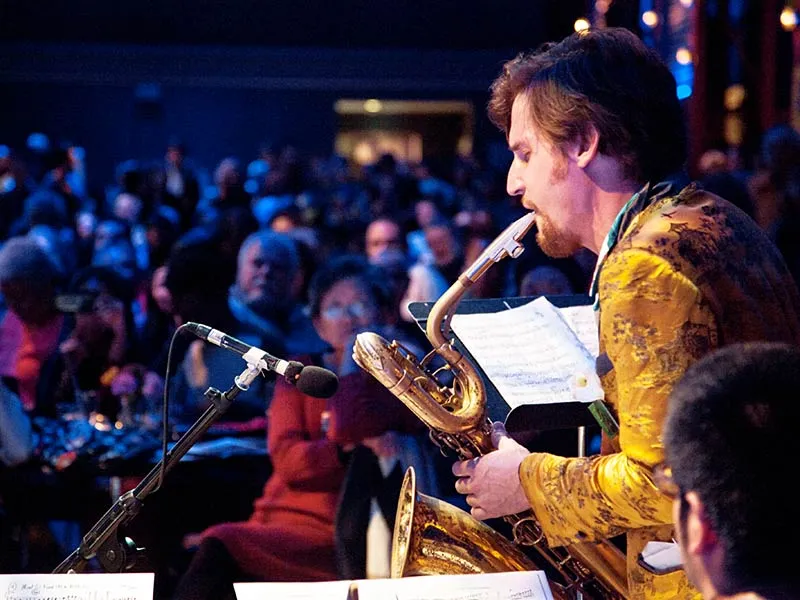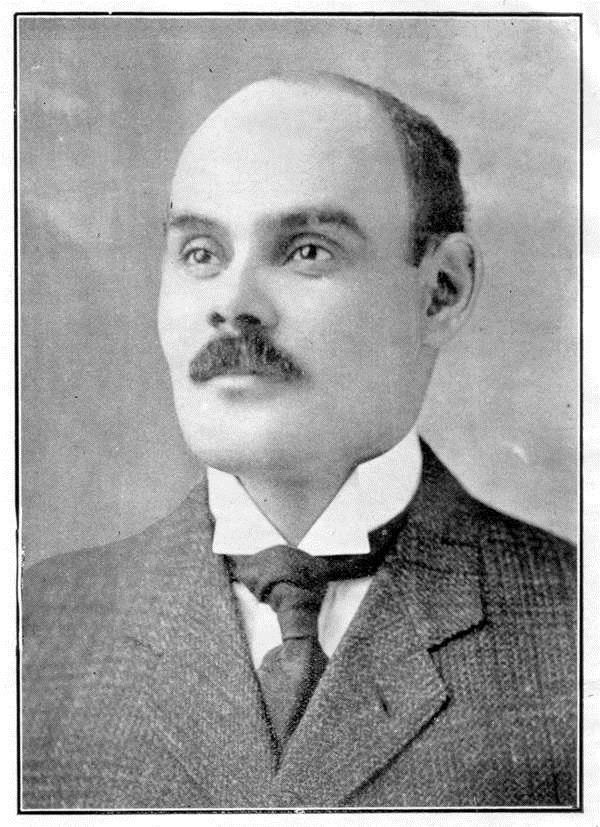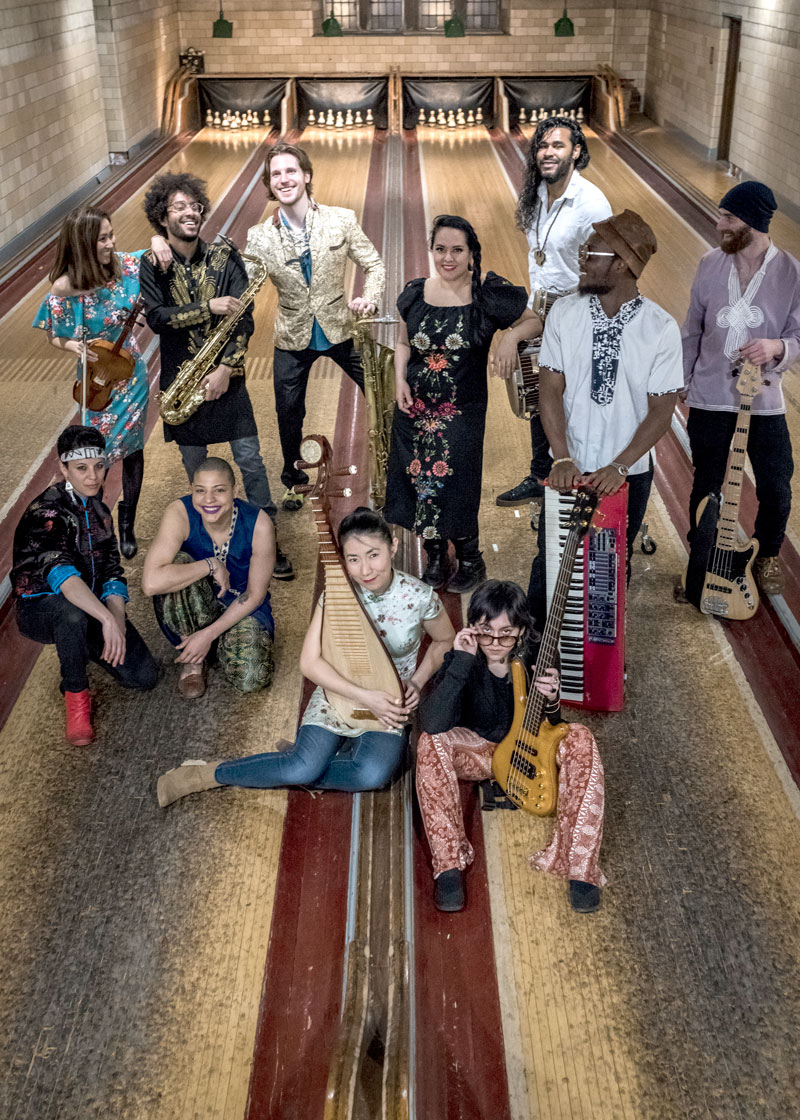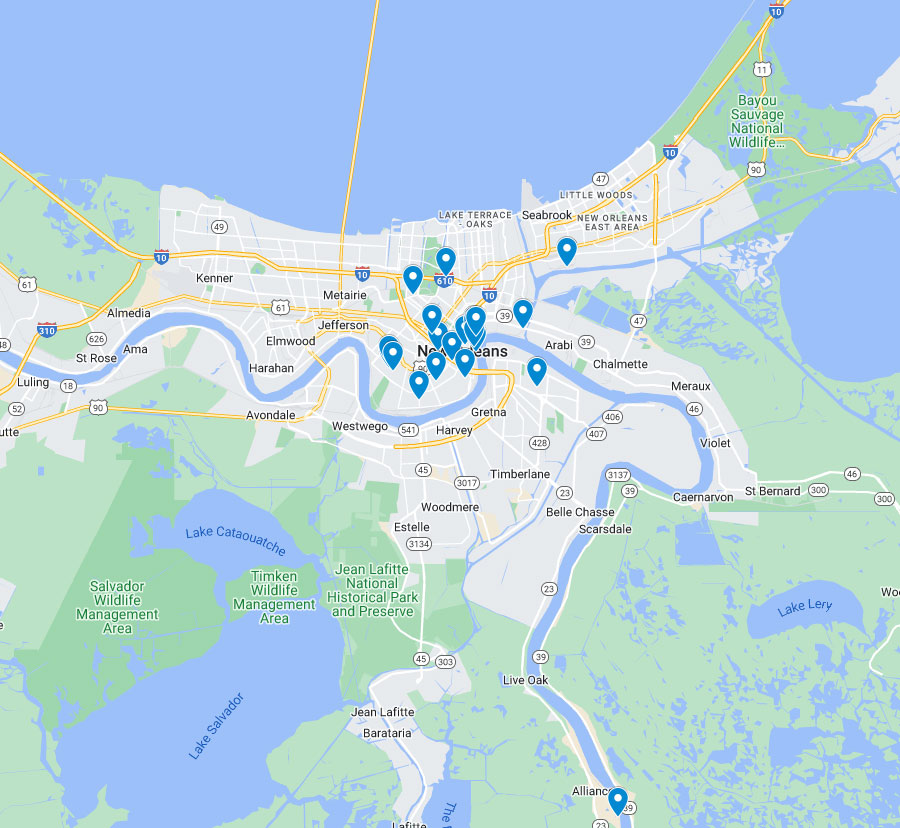
Biography
Benjamin Barson is a composer, educator, baritone saxophonist, historian, and political activist. His is the recipient of the 2018 Johnny Mandel Prize from the ASCAP Foundation, the top prize for jazz composers under 30. Barson is a Teaching Fellow and Ph.D. candidate at the University of Pittsburgh's Music program, where he teaches the History of Jazz and Recording Technology. Mentored by the late composer Fred Ho, his research and compositional practice explores the jazz idiom’s dialogue between Afrodiapsoric, American Indigenous, and East Asian influences. Ben was also the recipient of ASCAP’s 2017 Fred Ho Award; multiple Tinker Fellowships for research and performance in Cuba (2017 & 2018); the 2018 UConn-Storrs Fred Ho Fellowship; among others.
Barson has recently played at the Springfield Jazz Festival (2018), the Pittsburgh International Jazz Festival (2018), the Kennedy Center’s Millennium Stage (2018), Lincoln Center’s Boro-Tech Program (2017) among other major festivals and venues.
Research
Jazz is oft understood as “America’s music.” Yet Afro-Caribbean influences dramatically shaped the culture and historical development of jazz’s birth city, New Orleans, between the 19th and 20th centuries. The history of Haitian-Louisiana immigration one very instructive subset: according to Gwendolyn Hall, broad emigration of French-Haitian planters and their slaves led to the “re-Africanization” of Louisiana in the aftermath of the Haitian revolution.
These immigrants led to new forms of culture and political movements, and these impacts are traceable up until the immediate generations preceding the birth of jazz. Pianist Jelly Roll Morton and saxophonist Lester Young had immediate family members who practiced a variant of Haitian Vodou. Radical republican ideas influenced Creoles of Color who contested segregation, including Daniel Desdunes, an Afro-Creole cornet player of Haitian descent and leader of the Creole Onward Brass Band. Desdunes participated in a successful sit-in on a segregated train car in 1890 to enable the New Orleans Comité des Citoyens to challenge the law in the courts.
My interest is exploring the lives of New Orleans musicians at the turn of the century, such as the Desdunes family, to understand how their multigenerational legacy of activism connected to both their identities as creoles with Haitian ancestry and as improvising musicians. By emphasizing the pan-Caribbean nature of jazz’s genealogies of embodied expression, I believe that this work places the Gulf South bioregion in a global context, and especially to Black Atlantic critiques of slavery, racism, and capitalism.




